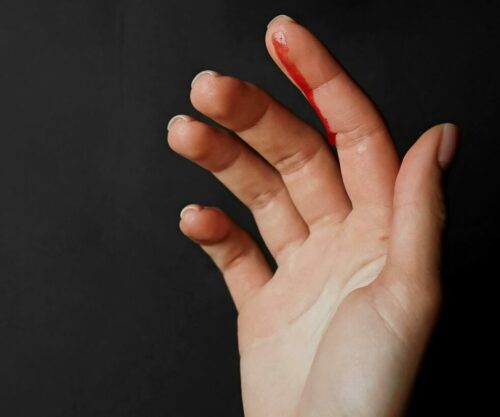
Parties throughout the year often come with excessive alcohol consumption done too quickly. This is called binge drinking, and it can have fatal consequences.
By Siya Mahomba
Time to party
Ingrid Louw, CEO of the Association for Alcohol Responsibility and Education (aware.org), says many people do not watch their alcohol intake. This leads to binge-drinking. Together with her team at aware.org, she is working in conjunction with leading manufactures of alcoholic beverages to prevent the negative consequences of alcohol abuse in South Africa. “Drinking alcohol is a normal part of social gatherings, and is meant to be enjoyed. However, some people tend to overdo it, especially during the December holidays where almost everyone is in a party mood. Binge-drinking often results in problems, some of which can be serious,” she says.
When is one too many?
Binge-drinking refers to the consumption of an excessive amount of alcohol with the intention of getting intoxicated in a short period of time. This happens when men have five or more drinks, and women have four or more within a two-hour time frame. According to the South African Breweries, a general rule for responsible drinking is to consume no more than one unit of alcohol per hour. This is because on average, our bodies can only process that much. Women are generally quickly affected by small amounts of alcohol compared to men. This means that you should mostly drink slower and less than men. A unit is a simple way of estimating the amount of pure alcohol in a drink; it stands at around 10ml or 8g. “The number of units in a drink depends on its size and strength. You can calculate by multiplying the size of the bottle and strength of alcohol, and then dividing by 1 000. For example, wine at 12% in a 750ml bottle would contain 9 units of alcohol,” Ingrid explains. Here are rough estimates found in popular drinks:
- Standard glass of wine: 2.1 units
- Draught glass of low-strength beer: 2 units
- Draught glass of high-strength beer: 3 units
- Bottle of lager: 1.7 units
- Cider: 1.5 units
- Single spirit with mix:1 unit
Effects of binge-drinking
If you tend to drink more than the recommended volume of alcohol, regularly drink to get drunk or too quickly; you might be a binge-drinker. General practitioner Dr Thozamile August says that could pose some serious dangers to your health. Although binge-drinking is not alcoholism, it can be just as dangerous. A bad hangover after a night of drinking is nothing compared to its short and long-term effects. “Drinking too much alcohol too quickly can put you at risk of many health complications. Temporarily, binge-drinking can lead to issues such as dehydration, nausea, loss of memory and hallucinations. If you tend to do this frequently, you are prone to several long-term harmful effects including cancer, infertility, sexual dysfunction and stroke. It can also cause serious damage to important body organs such as the brain, liver and heart,” he explains. Additionally, binge-drinking is, in most cases, the cause of alcohol poisoning. Ayabulela Mqikela (32) from Cape Town had a near-death experience after a binge-drinking spree with friends two years ago. It started when he felt an odd prickling sensation all over his body. Before he could make sense of it, he was having a violent seizure in the middle of the dance floor. “I don’t remember all the details, but I knew it was a hectic episode when I woke up in an emergency room at hospital in pain, and confused. Doctors said I was lucky to have survived acute alcohol poisoning, and could have had permanent brain damage,” he says. Dr Thozamile says a large amount of alcohol in your blood stream disturbs the body’s functionality, which can lead to fatal consequences. “In addition to slowing down your brain and dehydrating you, alcohol disorders the nerves responsible for your breathing and heartbeat. This is why binge-drinking puts you at a high risk of a heart failure.” It also reduces your driving ability as it impairs your judgement.
Drink responsibly
Ingrid says social drinking does not increase the risks of serious alcohol problems, as long as the consumption does not exceed moderate levels. She shares some tips to avoid binge-drinking:
- Decide how much you will drink beforehand.
- Keep track of, and limit the amount you consume on a single occasion.
- Drink slowly, and alternate each drink with a non-alcoholic beverage and food.
- Avoid situations that may potentially trigger binge-drinking.
- Go out with friends with whom you share similar consumption limits.
- Avoid predrinks before going out.
- Don’t take part in drinking games.
Remember that moderation is key. Despite the prominence of alcohol consumption as a way of celebrating or relaxing, you can still have a great time without drinking. Options range from selecting non-alcoholic drinks to spending time with loved ones in an alcohol-free environment.
Seek help
If you have a binge-drinking problem, contact Alcoholics Anonymous South Africa on 0861 HELP AA (435 722). Aware.org has programmes in place to help anyone with alcohol-related problems. Visit aware.org.za




